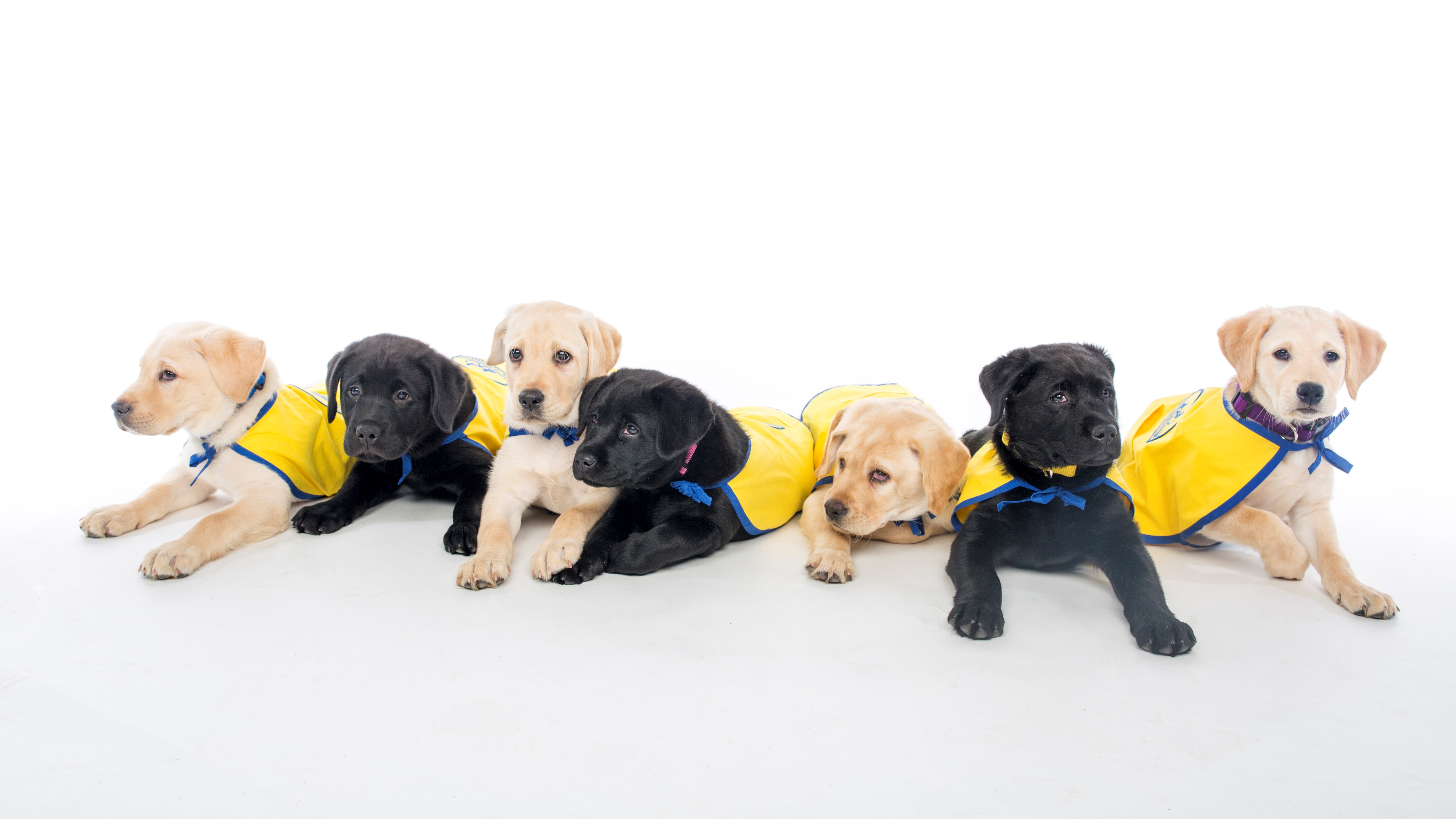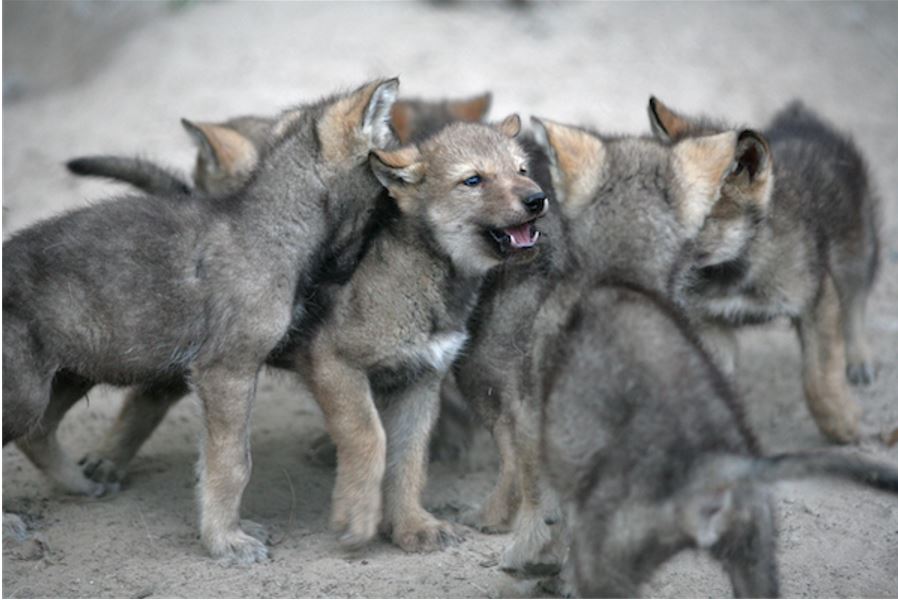Puppies are born with a knack for reading human gestures
Dog puppies have an aptitude for understanding human gestures that isn't seen in their closest relatives, wolves.

If you've ever felt that your dog just seems to "get you" in a special way, you'd be right. Dog puppies have an aptitude for understanding human gestures that isn't seen in their closest relatives, wolves, even when wolf pups are raised by humans, a new study finds.
Dog puppies are born with a knack for reading human gestures, like pointing towards food, even with no specific training. Wolf puppies, on the other hand, don't follow human gestures any more than would be expected by chance.
"Dogs are born with this innate ability to understand that we're communicating with them and we're trying to cooperate with them," study lead author Hannah Salomons, a doctoral student studying social cognition at Duke University in North Carolina, said in a statement.
Related: Why do dogs bury bones?
The findings, published Monday (July 12) in the journal Current Biology, support the idea that the domestication of dogs from wolves changed the way dogs think, the authors said. "This study really solidifies the evidence that the social genius of dogs is a product of domestication," study senior author Brian Hare, a professor of evolutionary anthropology at Duke University, said in the statement.
For the study, the researchers compared the cognitive skills of 44 dog and 37 wolf puppies ages 5 to 18 weeks. The wolf puppies, which were born and raised at the Wildlife Science Center in Stacy, Minnesota, had near-constant human contact starting from shortly after birth — their human caretakers spent most of the day with the wolf pups, fed them by hand and slept with them at night.

In contrast, the dog puppies stayed with their mothers until they were 6 weeks old, and with their littermates until they were 8 weeks old. During this time, they had only short interactions with humans. After eight weeks, the puppies went to live with human families, although most puppies in the study had their cognitive skills tested prior to their adoption.
Sign up for the Live Science daily newsletter now
Get the world’s most fascinating discoveries delivered straight to your inbox.
In one cognitive test, the researchers hid food in one of two bowls, and then pointed toward and looked at the bowl with the food, or placed a block next to it, to give the pups a clue as to where the food was located.
Dog puppies were twice as likely to pick up on the human cues, going straight to the bowl with the food, compared to wolf puppies. And many of the dog puppies followed the cue on their first try, without any specific training.
In another test, the pups were given a container with food that was sealed so that they couldn't open it. Still, the wolf pups typically attempted to open the container on their own, while the dog pups spent much more time making eye contact with humans, looking for help.
The study also found that dog pups were 30 times more likely to approach a stranger compared with the wolf pups, even though the dog pups had comparatively little contact with humans in their early lives.
"With the dog puppies we worked with, if you walk into their enclosure they gather around and want to climb on you and lick your face, whereas most of the wolf puppies run to the corner and hide," Salomons said.
There was no difference between the pups in non-social cognitive tasks, such as memory tests.
The findings support the "domestication hypothesis," or the theory that dogs' wolf ancestors were selected for their friendliness and attraction to humans, and over generations these animals passed down their cooperative genes, eventually becoming domesticated dogs.
"Once attraction replaced fear, inherited social skills were applied toward humans in a new way and early in development," the researchers concluded.
Originally published on Live Science.

Rachael is a Live Science contributor, and was a former channel editor and senior writer for Live Science between 2010 and 2022. She has a master's degree in journalism from New York University's Science, Health and Environmental Reporting Program. She also holds a B.S. in molecular biology and an M.S. in biology from the University of California, San Diego. Her work has appeared in Scienceline, The Washington Post and Scientific American.









